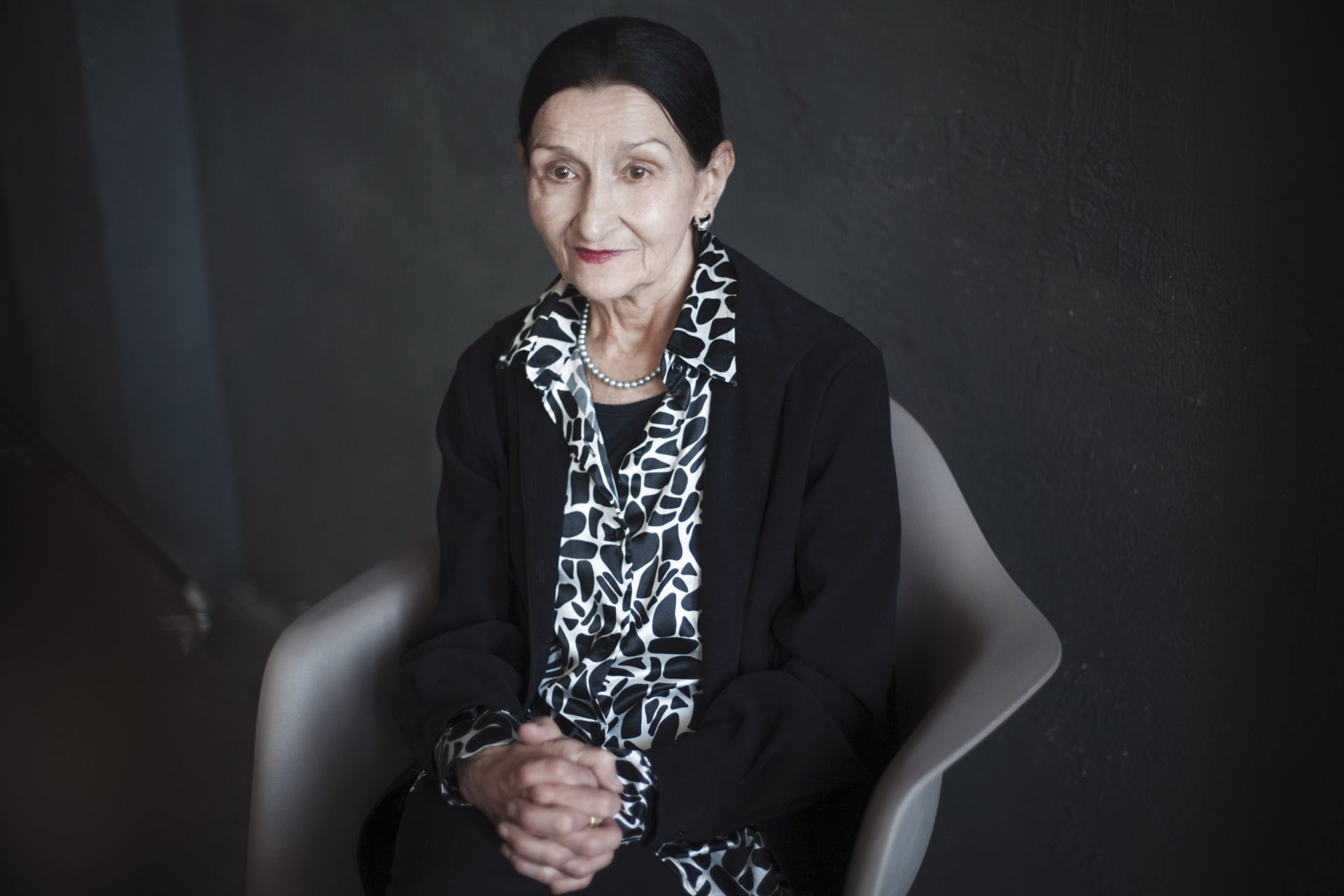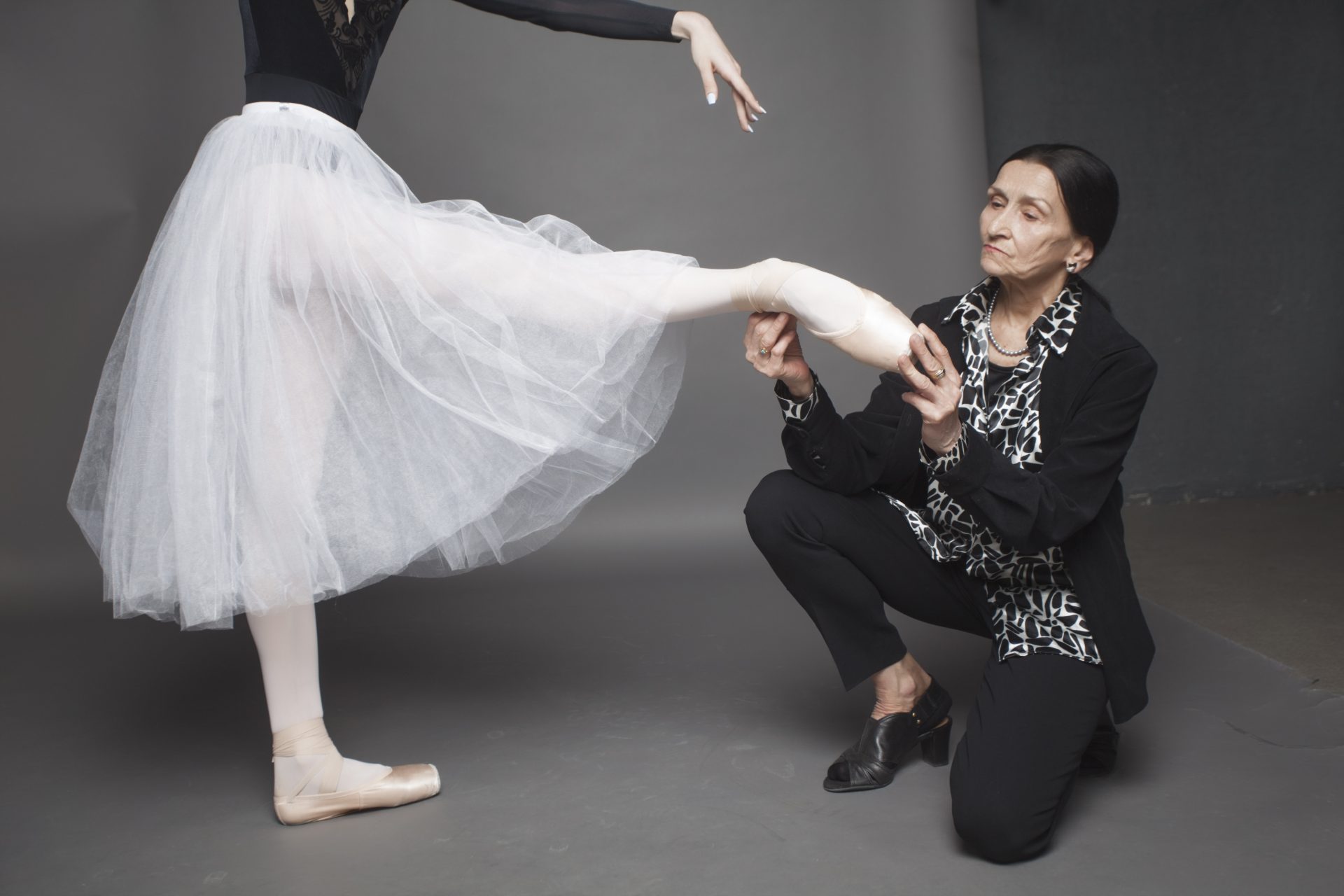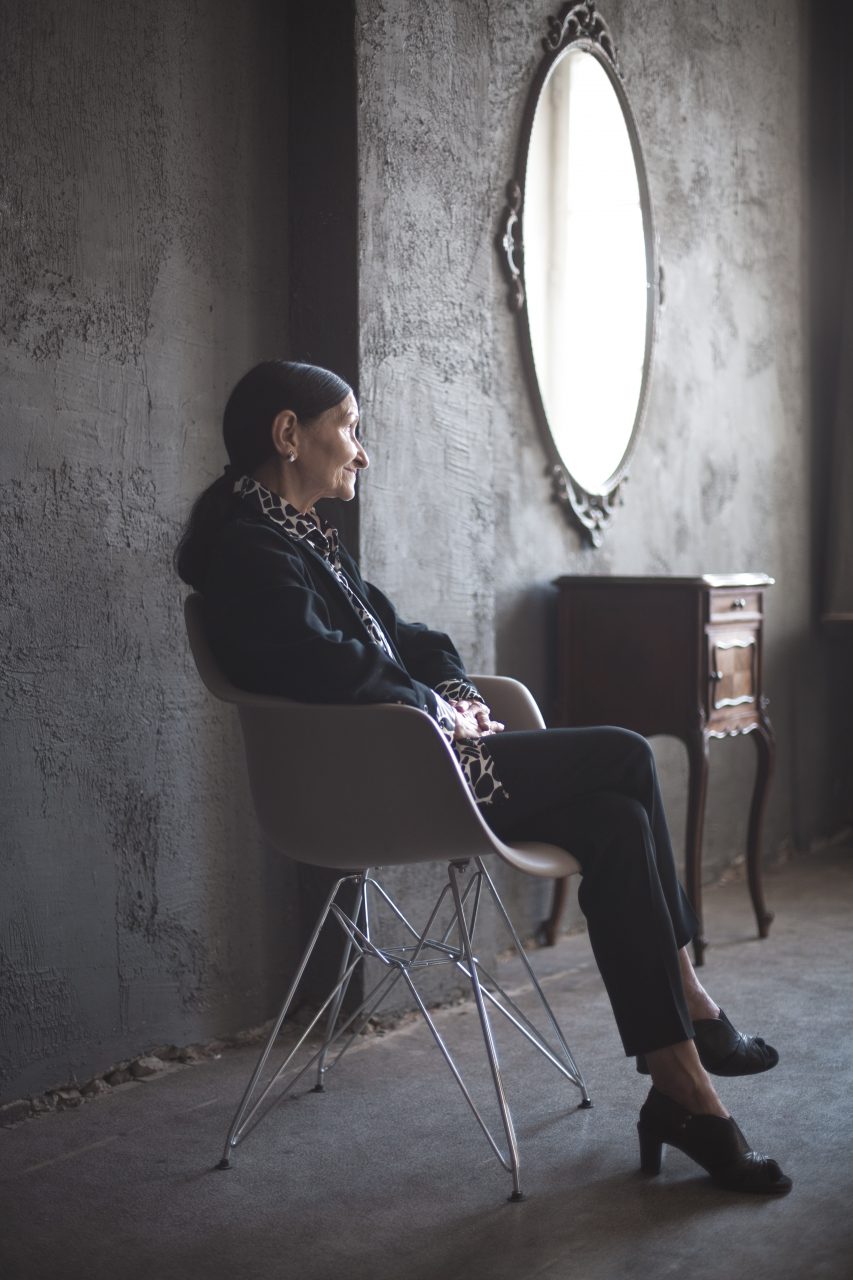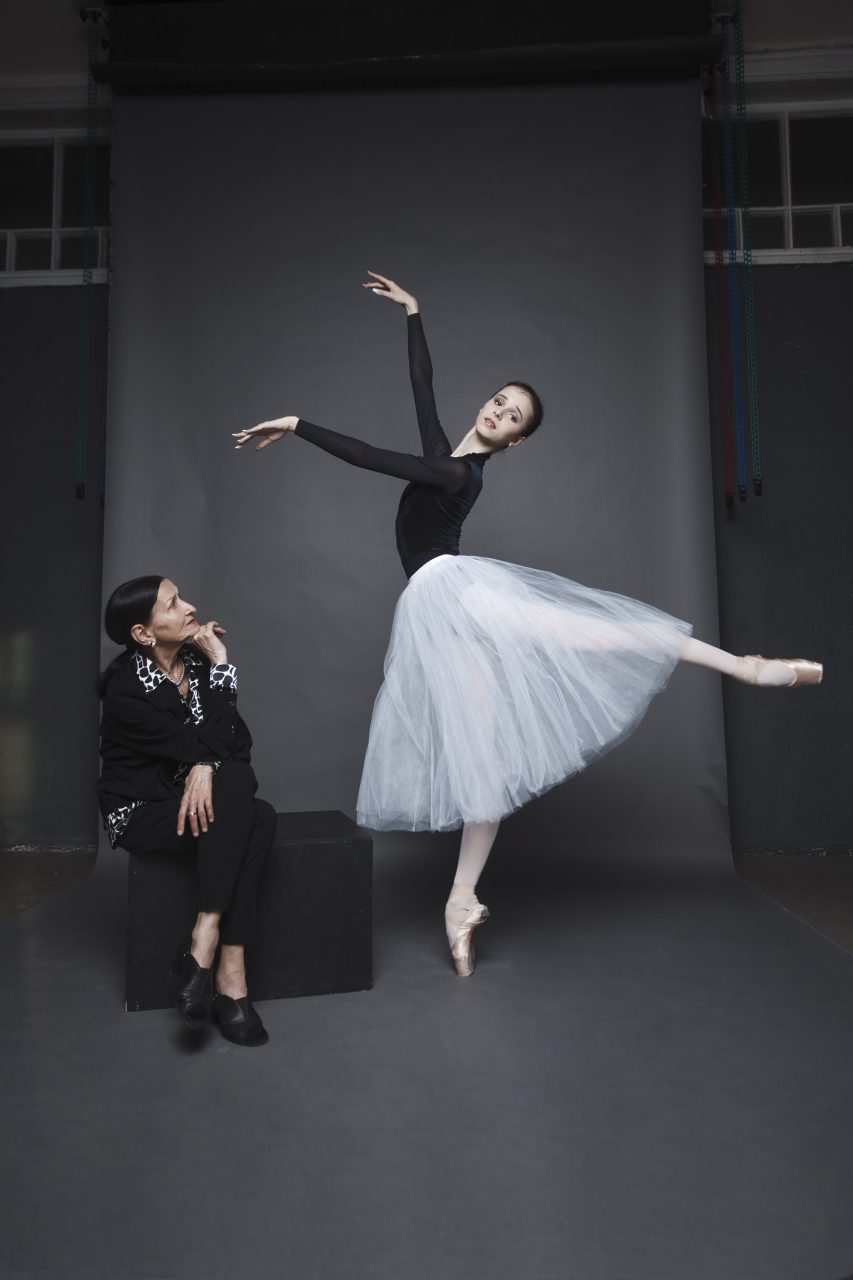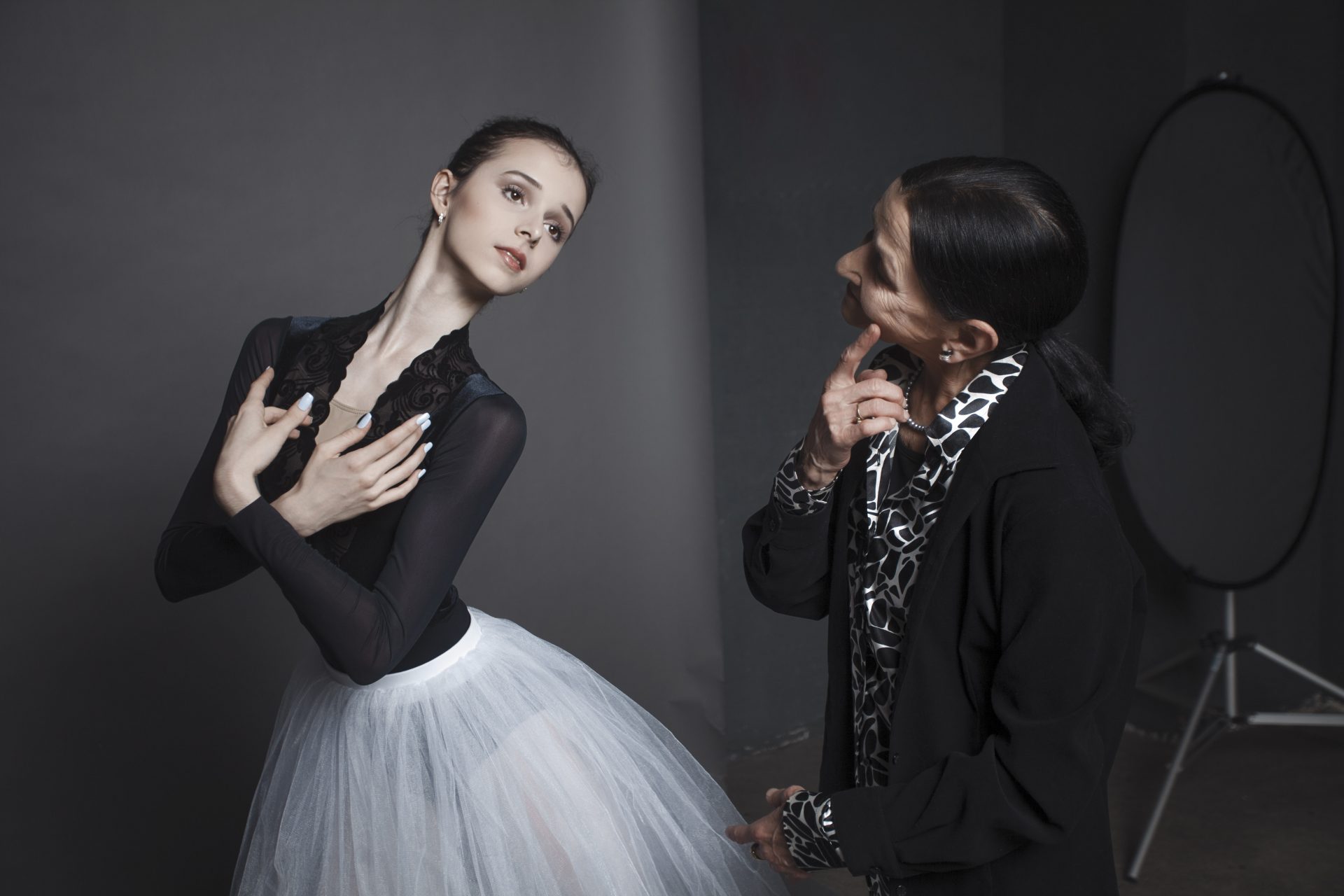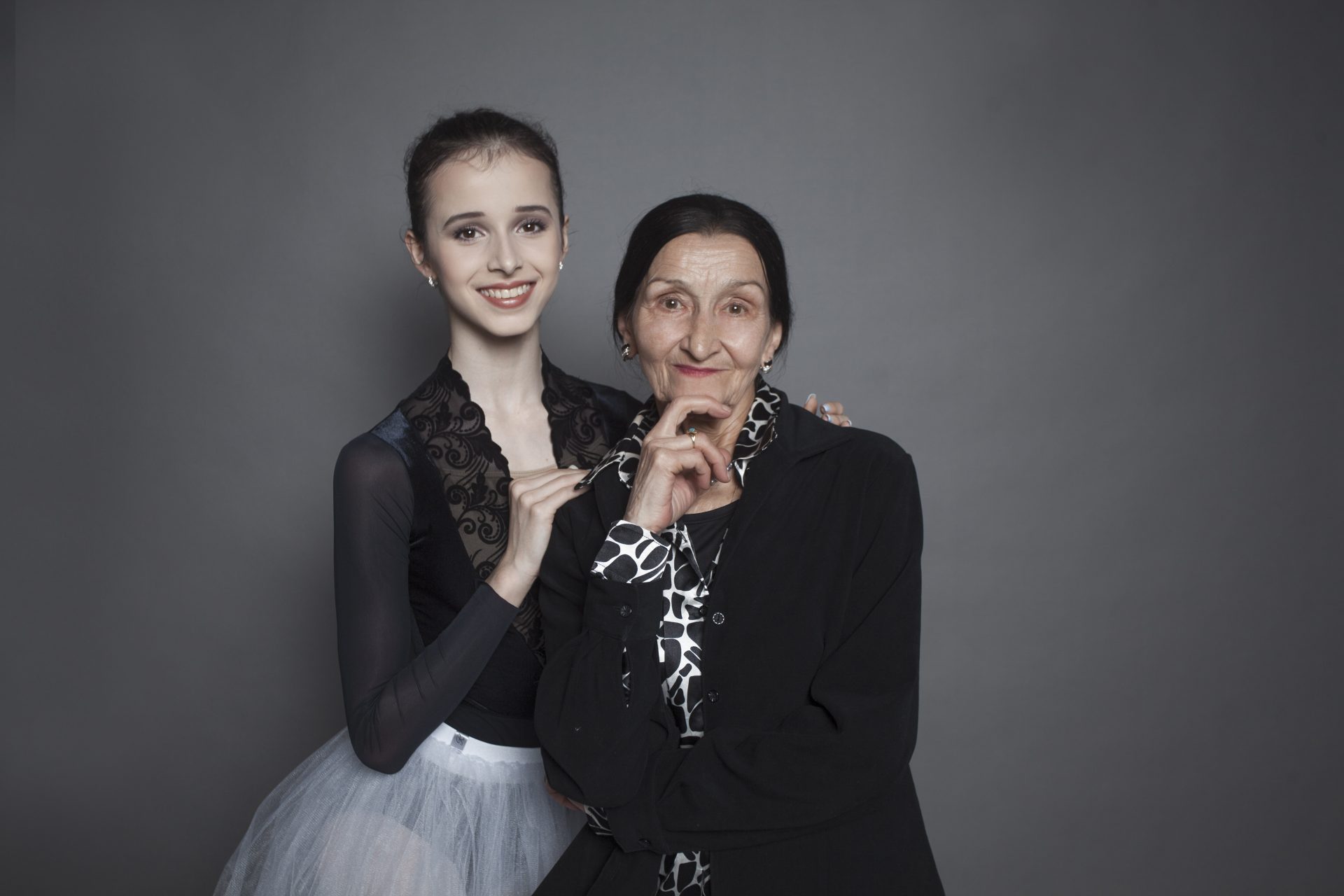When you take on a new class, do you experience any sense of fear or uncertainty in the face of the responsibility you have as a teacher?
There is no fear, of course. There is, however, an enormous sense of responsibility towards the children. I remain in a constant state of exploration while I lead a class. It is essential to find an individual approach to every student because all children have different personalities and physical qualities.
I often hear it said that one can immediately pick Ludmila Kovaleva’s students out of a crowd. What is that makes your girls stand out? Do you cultivate individuality in your students? Those of your graduates who ended up becoming ballerinas are all very different.
Teasing out a student’s individuality – even a deeply hidden one – is extremely important to me. Achieving the ultimate revelation of the individual is very interesting. How can it not be?
I don’t know… I suppose my students are distinguished by a particular manner of movement. Perhaps, it is my own individual style, a distinct mark. Every teacher has their own.
Many of your students – Olga Smirnova, Kristina Shapran, Diana Vishneva – perform challenging roles within the first year of graduating. What is your secret? How do you graduate fully-formed artists?
There is no secret to it. It is a complicated, ongoing process. In Diana’s case, while still a student in her final year at the academy, she was noticed by Oleg Vinogradov, who suggested that I prepare her for the role of Kitri in “Don Quixote.” It was vital for me to, on the one hand, stay faithful to the choreography, while showing off Diana’s individuality, on the other. I didn’t want to copy [what had been done before] or to pigeonhole [Diana]. Together, we searched for original inflections and variations.
Were you very anxious before that performance? How did you get through it?
With the help of Validol. I was especially nervous during my own daughter’s and Diana’s graduation performances.
On the subject of your daughter: your students always speak very warmly of you, this must mean that you have managed to give enough affection to both your students and your children.
Unfortunately, I paid much less attention to my children. But we have to play the hand we’re dealt. Fortunately, my children and I are very close.
Every new set of students, each new class, must change you in some way. In retrospect, what was the most significant change you have undergone?
A person is always changing, growing, developing, and fighting their defects. A teacher is constantly surrounded by young people. One must speak their language, understand them and recognize what is happening to them, understand their circumstances. They keep you from growing old.
What would you never allow or tolerate in class?
I would not suffer despondency and sloppiness, although sloppiness can be dealt with. Dejection, on the other hand, is a terrible thing. As is a lack of faith in the teacher or oneself. One must always have faith!
Would you work with a student who, while not very capable, shows some good qualities?
I work with everyone, though it is harder to achieve a result when you don’t have a connection with the student.
Would you agree that ballet is a very unjust business?
The chief injustice has to do with the fact that, at times, very little depends on the children themselves. They come [to the academy] all pretty and full of zeal, every one of them is a little star, but their fate is eventually determined by their physical qualities: some gain weight, while others don’t grow. This is always very painful, both for the children and their teacher. Unfortunately…
Do you prepare your students for what awaits them at the company?
I am preparing my students for their future careers for the duration of the course I am teaching. The biggest asset I can give them, in terms of dancing with a company, is graduating bona fide professionals. Every person is given a “chance” in their life, and one must be prepared to take it.
And one must never stop working, yes?
Our profession is just that – work. Both physical and spiritual. One must always listen to music and learn to understand it. That way, a character can take shape in one’s soul. Otherwise, dance is reduced to a series of movements.
How strict must a teacher be?
[It’s all about] the carrot and the stick. The stick alone will do you no good. The two must alternate.Fifty-fifty?
No, let’s make it seventy percent carrot.
What do you feel [Russian] ballet is lacking at the moment?
Quality modern productions. After all, choreographers foster and shape the mindsets and the tastes of young dancers. Although one must never forget about classical ballet, which continues to excite and astonish regardless of any trends.
Have you ever had one of your students become conceited?
I have never had such a student. The academy fosters a thoroughly proper attitude to work.
The graduation performance is looming ahead. After that, [the students] are on their own. What do you feel during the curtain call?
[I feel] anxious for the future of my students, and, naturally, a little sad. We have been through so much together…It is likely that they will read this interview. Is there anything you would like to tell them?
A ballet career is fleeting. Its beauty is ephemeral. Dream. Be daring. Good luck to you. And never lose faith in yourself.
Maria Khoreva, Ludmila Valentinovna’s student:
Ludmila Valentinovna is very young: she has the latest iPhone, she understands youth slang, and she is completely across modern life. Perhaps, this is one of the secrets behind her mastery, her ability to “manufacture” ballerinas: Diana Vishneva, Olga Smirnova, Kristina Shapran – all three are her former students. I would like to add a few more notable – from her students’ point of view – facts:
First: Ludmila Valentinovna is, without a doubt, a genius. It is tough to comprehend, and it is extraordinarily challenging to keep in mind during every class and every rehearsal you have with her. If you forget it, the quality of the class drops down to practically nothing; but the moment you remember it – a connection is forged, and you end up advancing to an entirely new plane.
Second: Ludmila Valentinovna is a genius. She is the one who made me realize that, in ballet, a result can only be achieved through collaboration, through synergy, rather than through pressure. I very much wish to carry all of her directions and rules into my adult life, and in my work, I will endeavor to rely on what she has taught me.
Third: Ludmila Valentinovna is a genius. She knows of so many little details and nuances which can enrich a character with genuine emotion, accentuate the meaning of a movement which must be communicated to the audience, and, ultimately, allow you to achieve a result which is far beyond the realm of a simple ballet performance. She teaches you how to fill every movement with energy, she gives a lot of attention to correctly conveying a movement to ensure that the dance is filled with dignity. I think her secret is that she finds a key to her students; she opens them up.
I am not merely grateful to her, I have to admit that the person I am today is one hundred percent her creation. Thank you, Ludmila Valentinovna!
Interview Alisa Aslanova
Photographer Ira Yakovleva
Translated by melmoth.blog
Special thanks to Diana Vishneva Studio Context Pro.



